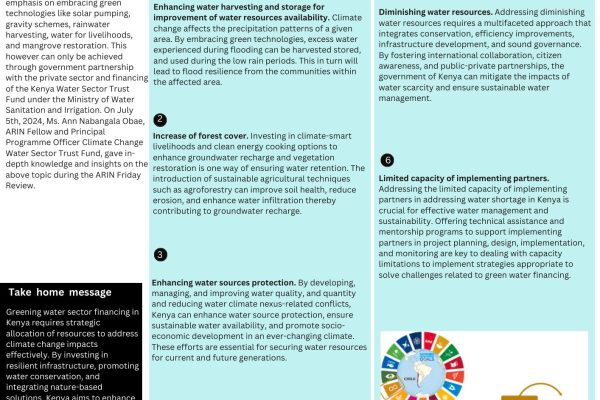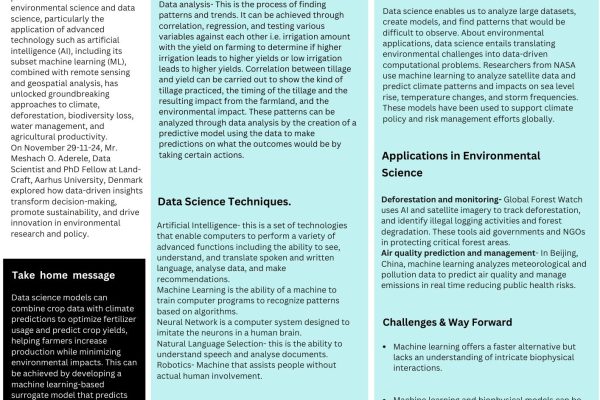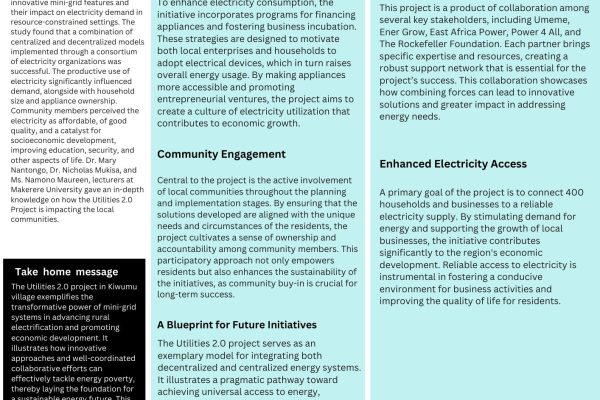INTRODUCTION
Climate change poses a major challenge for research institutions, academia, local communities, policy-makers and governments need to generate broad public support for an effective response. Raising public awareness and shaping knowledge, attitudes and perceptions regarding climate change is therefore very crucial. The ARIN weekly review served as an inspiration to the above topic as presented by Mr. Jim Oduor on 19-01-2024.
Key Messages
Understanding public perceptions on climate change
Achieving net zero emissions globally will require a variety of policy intervention. From a public acceptability perspective, public perceptions can hinder the adoption of otherwise desirable climate change mitigation policies. Tackling climate change requires ensuring that climate action receive broad public support. Understanding public perception is a first step in this direction.
Raising climate change and policy awareness.
Knowledge about climate change mitigation policies remains far from universal, and many people still have no opinion when it comes to supporting or opposing climate change policy actions in their country and continent at large. To support climate change transition, there is an urgent need to close the still-large information gaps and raise awareness of the societal transformations and behavioral changes needed, the cost of inaction and the impact of climate policies.
Securing multilateral support for climate action.
There is widespread support for international cooperations with sizeable shares of respondents even in emerging market countries favoring global climate action with burden sharing based on current emissions. The public is likely to be more supportive for adopting costly climate policies if other countries do so, both because this increases the odds of reaching global net zero emissions goals and because those efforts resonate with widely held fairness norms. Securing cooperation among a small number of the largest emitters could catalyze the needed global action and pave the way for other countries to follow suit.
Community and education training.
Education and training programs in communities that are tailored to the specific needs and contexts of the target audience can also play a significant role in shaping knowledge attitudes and perceptions regarding climate change in Africa. By providing education and training that is relevant and accessible, community members will be better equipped to mitigate and adapt to the impact of climate change.
Partnerships and collaborations
Partnerships and collaborations with relevant stakeholders are crucial in shaping knowledge, attitudes and perceptions regarding climate change. By working with government agencies, NGOs, and the private sector, resources can be mobilized, expertise and best practices can be shared, and a united front can be created for climate actors.
Conclusion.
Improving knowledge, attitudes and practices in regard to climate change can be achieved through promotion of systemic activities for raising awareness and instilling confidence among the vulnerable groups in their ability to adapt to climate change collectively by having a well-organized mutual help from different stakeholders, identifying the areas and population groups that need the most help in improving knowledge, attitudes and perceptions to shape informed decision making strategies for building resilient and adaptive capacity in mitigating adverse climate change effects that is ravaging both flora and fauna.




